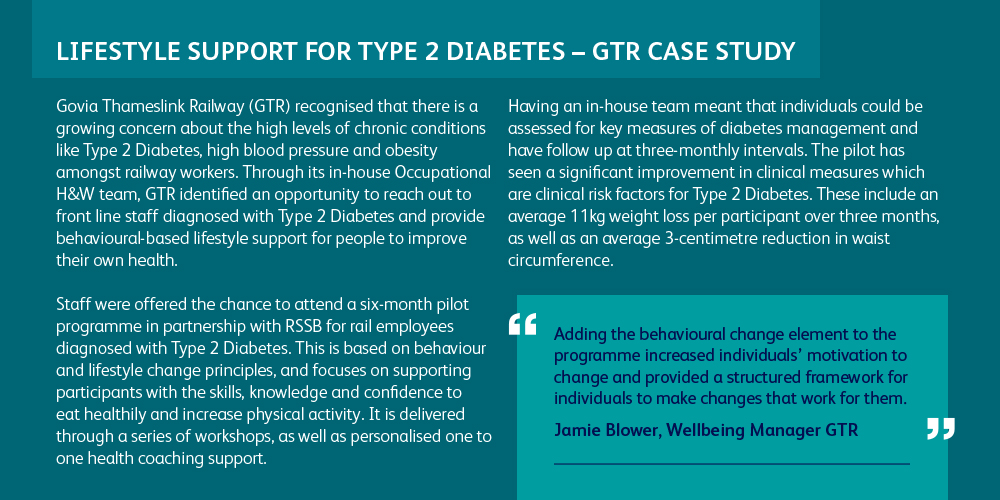Why we need to tackle Type 2 Diabetes - A GTR case study
Type 2 Diabetes and Obesity are complex, chronic conditions, and many factors contribute to an individual developing these health conditions. An individual’s genetics, metabolism, lifestyle choices, environment, socioeconomic status and previous health experiences affect how easy or difficult it is to maintain optimal health.
The concept of balanced energy is the bedrock of public health advice. But “calories in – calories out” isn’t the whole picture when it comes to weight. It may be true that when the body consumes more calories than it can burn, the remainder is stored as fat, however weight loss is not as straightforward as simply counting calories. Research in behavioural science shows that it is better to focus on diet and lifestyle changes first and foremost. Understanding our relationship with food—why we eat what we eat and when we eat it—and improving the quality and balance of food we consume leads to long-term behavioural changes. These can have a bigger impact than calorie-restricted eating plans alone.
Using behavioural science, RSSB and GTR have jointly piloted an evidence-based lifestyle programme for employees with Type 2 Diabetes. The programme showed significant success in reducing weight.
This work emphasised the positive impact that a preventative health approach can have on managing chronic health conditions. It demonstrated the value of embedding behavioural change and the promotion of health in wellbeing programmes.
The need for the industry and individuals to address chronic lifestyle conditions like diabetes is made even stronger with the current Covid-19 pandemic. The latest NHS statistics, at the time of writing, show that 26% of Covid-19 deaths involved people with diabetes.


